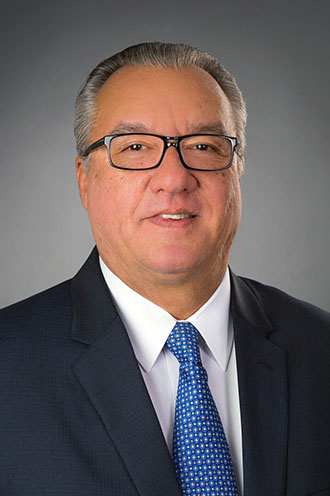S&P Global Offerings
Featured Topics
Featured Products
Events
S&P Global Offerings
Featured Topics
Featured Products
Events
S&P Global Offerings
Featured Topics
Featured Products
Events
Banking & Capital Markets
Economy & Finance
Energy Transition & Sustainability
Technology & Innovation
Podcasts & Newsletters
Banking & Capital Markets
Economy & Finance
Energy Transition & Sustainability
Technology & Innovation
Podcasts & Newsletters
S&P Global Offerings
Featured Topics
Featured Products
Events
1 Dec, 2021
By Camille Erickson
➤ U.S. steel and differentiated iron ore producer Cleveland-Cliffs Inc. is calling on the Biden administration to impose import restrictions on transformer components containing electrical steel to help ensure the country's domestic supply for electrical infrastructure.
➤ The U.S. recently passed a $1.2 trillion infrastructure bill that included $65 billion for modernizing the national electrical grid, which will require an influx of raw materials, including electrical steel.
➤ Transformer components and the electrical steel they contain are mainly produced outside the U.S. and imported at low prices, causing domestic electrical steel production to wane in recent years as U.S. metal producers struggle to compete.
 |
|
Cleveland-Cliffs Inc. Chairman, President and CEO Lourenco Goncalves. |
S&P Global Market Intelligence spoke with Cleveland-Cliffs Chairman, President and CEO Lourenco Goncalves to learn what needs to happen to level the playing field for U.S. companies and workers during the energy transition. The conversation has been lightly edited for clarity and length.
S&P Global Market Intelligence:
Lourenco Goncalves:
Why is having a domestic supply of electrical steel important for the U.S.?
Let's assume we were hit by a hurricane. Next thing you know, you'll see a bunch of poles are down, and when a pole goes down, the transformer that's hanging from that pole goes down as well. That's why lights go out in the towns that are hit by hurricanes. We need to replace an enormous number of transformers, and we need to do it right away because people are not going to wait for three months for a vessel to arrive with electrical steel from South Korea or Japan. Waiting on steel imports would create a situation where towns or big cities would be — depending on where the hurricane hit — without power for three, four, five or six months. That's why we call it a national security problem.
We're talking about hospitals, schools, banks, the entire power of our cities shutting down. Without transformers, you have no transmission of electricity. Then, it only takes a big rainstorm or a big hailstorm in Oklahoma or a tornado in a small town in Missouri or a snowstorm in New York for us to have to replace hundreds of thousands of transformers in a short period of time. The only way to do that is if you have domestic production.
Why aren't there more electrical steel producers in the U.S.?
The most relevant thing to understand is that several decades ago, there were several producers of electrical steel. Back in December of 2019, when we first announced that we would be acquiring AK Steel, AK Steel was the last man standing because of years and years and years of "dumping." Dumping was able to break the back of one after the other of the suppliers of electrical steel.
Can you explain what you mean by dumping?
What South Korea and Japan are doing is basically diluting their fixed cost by sending dirt-cheap materials to North America, first to the U.S. and later, because of Section 232 [tariffs], to Mexico and Canada before crossing the border into the U.S. That's called dumping. Cleveland-Cliffs produces electrical steel at a very competitive price. But we cannot compete against dumping.
What role has the Biden administration played so far in addressing this problem, if anything?
During the first months of the Biden administration, Cleveland-Cliffs had to start over by educating Secretary of Commerce Gina Raimondo and U.S. Trade Representative Ambassador Katherine Tai on the same things we were doing a couple of years before with the Trump administration. And we brought them up to speed. That's why we're seeing movement in this entire thing right now because the progress is obvious.
We are on the way to fixing this. I'm even more encouraged now because of Secretary Raimondo and Ambassador Tai, they understood this problem very quickly and are acting upon it. So, what we have in place right now is a commitment that we will produce transformers inside the [United States-Mexico-Canada Agreement], using steel produced in the USMCA. And the only producer of electrical steel in the USMCA is Cleveland-Cliffs. Canada and Mexico can still produce core and laminations [transformer components]. The only restriction for them is to have to use Cleveland-Cliffs' steel. It's time to make these restrictions official.
How has recent market volatility and supply chain constraints impacted Cleveland-Cliffs?
I'm not seeing that because Cleveland-Cliffs is a fully integrated company. We produce our own raw materials in the U.S., including from iron ore pellets, environmentally friendly hot-briquetted iron feedstock and coking coal. This feedstock is melted in our own furnaces. Then, we produce steel, and part of this steel is electrical steel for the types of uses explained including transformers. So, we are not complaining about any volatility. We have that under full control.
